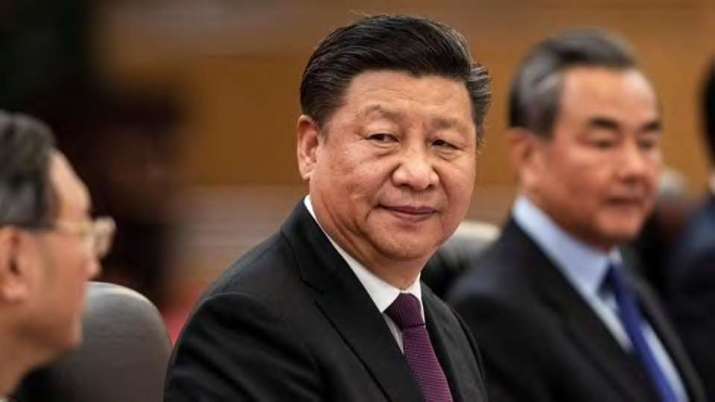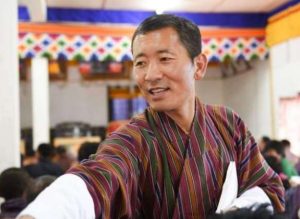
Chinese president Xi Jinping has issued a firm call for the “sinicization” of Tibetan Buddhism in Tibet, Chinese state media reported on Saturday. During an address to senior Communist Party leaders at a two-day forum in Beijing on the future governance of Tibet, Xi asserted that Tibetan Buddhism needed to adapt to socialism and to Chinese conditions: “It is necessary to actively guide Tibetan Buddhism to adapt to the socialist society and promote the sinicization of Tibetan Buddhism.” (The Economic Times)
Xi, who is also general secretary of the Communist Party of China (CPC) Central Committee and chairman of the Central Military Commission, told the seventh Central Symposium on Tibet Work on the topic of “sinicization” that political and ideological education should be increased in Tibetan schools as a means to “plant the seeds of loving China in the depths of the hearts of every youth.” (Al Jazeera)
In remarks published by state news agency Xinhua, Xi said: “It is necessary to dig out, sort out, and publicize the historical facts of the exchanges and integration of all ethnic groups in Tibet since ancient times, guide the people of all ethnic groups to see the direction and future of the nation, deeply realize that the Chinese nation is a community of destiny, and promote exchanges and integration of all ethnic groups.” (The Asian Age)
“Sinicization” generally refers to assimilating ethnic minority communities within territories under Beijing’s governance into Chinese culture and political systems, as defined by the CPC, which frequently describes its broad objective as “socialism with Chinese characteristics.” In terms of religion, “sinicization” involves ensuring that spiritual beliefs and teachings conform with the CPC’s principles and objectives. In 2015, Xi spoke about sinicizing Catholicism, Protestantism, Islam, and Daoism, as well as Buddhism—the five major religious traditions in China.
Most historical accounts agree that Buddhism was first actively disseminated in Tibet in the late seventh century CE, when the Tibetan monarch Songtsen Gampo invited Indian Buddhist masters to teach his people. Buddhism flourished under state sponsorship for several generations. In the eighth century, King Trisong Detsen invited the Indian master Padmasambhava (also known as Guru Rinpoche) and Shantarakshita, the chief monk of Nalanda university, to establish a monastic tradition which became the Nyingmapa, the oldest of the four major schools of Tibetan Buddhism still extant today.
Despite decades of CPC rule, Tibet, officially known as the Tibet Autonomous Region, remains a deeply Buddhist society in which His Holiness the Dalai Lama continues to be widely revered as a spiritual touchstone, despite his self-exile in India since 1959. While Beijing views the Dalai Lama as a separatist, or “splittist,” who wants independence for Tibet, the 1989 Nobel Peace Prize laureate has repeatedly stated that he only seeks greater rights for Tibetans in their homeland, including religious freedom and autonomy.
The two-day government symposium, which ended on Saturday, was held amid the 55th anniversary of the founding of the Tibet Autonomous Region, marked by the establishment of the regional People’s Congress on 1 September 1965.
Chinese forces took control of Tibet in 1950 in what the CPC describes as a “peaceful liberation” of the remote Himalayan region. Since 1959, Tibet has experiences intermittent periods of unrest and protest against Beijing’s rule. The CPC’s official line is that Tibet has been an inviolable part of China since the 13th century.
Xi added that it was also necessary to strengthen the frontier defenses and security of the Tibet Autonomous Region, which shares borders with Bhutan, India, and Nepal. “It is necessary to strengthen the education and guidance of the masses, extensively mobilize the masses to participate in the struggle against separatism, and form a copper wall and iron wall [which translates as “impregnable fortress” in Mandarin] for maintaining stability,” he said. (Hindustan Times)
In order to build what he described as a “united, prosperous, civilized, harmonious, and beautiful new, modern, socialist Tibet,” Xi said China needed to strengthen the CPC’s role in the territory to enable greater integration of the region’s ethnic groups. (Al Jazeera)
Beijing’s policies toward Tibet and other ethnic minority regions have come under increased scrutiny in recent months as political, diplomatic, and economic ties with Washington, DC, have unraveled, and amid rising tensions with Bhutan and India over disputed border regions claimed by the Chinese government.
See more
Xi says China to step up efforts to fight ‘splittism’ in Tibet (Al Jazeera)
Sinicise Tibetan Buddhism, build fortress around Tibet, says Xi Jinping (Hindustan Times)
Xi calls for building ‘new modern socialist’ Tibet, favours Tibetan Buddhism’s ‘sinicisation’ (The Economic Times)
Xi calls for building a ‘socialist Tibet’, favours Tibetan Buddhism’s ‘sinicisation’ (The Asian Age)
CCP leader in TAR urges officials to fight against Dalai Lama forces (Phayul)
Chinese President Xi Jinping turns focus onto Tibet border security (South China Morning Post)
Xi’s speech sets policy direction for Tibet (Global Times)
Xi Focus: Xi stresses building new modern socialist Tibet (XinhuaNet)














